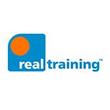Public librarian
Public librarians help provide an information, reading and cultural hub for the local community
As a public librarian you'll acquire, organise and provide access to a range of information and reading resources to meet the diverse needs of a community. You'll support independent learning and encourage reader development, and will also provide information on areas such as:
- business
- the community
- careers
- learning
- recreation.
Public librarians are proficient in the use of IT as part of the role involves assisting the public in accessing the internet and other web-based services.
You may also spend time talking to, and building up relationships with, members of the public and assisting with specific learning needs or community groups.
Public librarians run events in the library for the community and work with local schools, colleges and universities to improve key skills in areas such as literacy, numeracy and IT.
Job titles vary and jobs may be advertised as team librarian or customer service librarian, for example. Other job titles include children's librarian, local studies librarian or reference librarian.
Responsibilities
As a public librarian, you'll need to:
- keep up to date with newly released publications in order to select library resources
- organise resources in an accessible way
- manage your stock, including the weeding out of old resources
- anticipate community needs and trends to ensure library services are used as much as possible
- promote the use of the library through displays, talks and community events, which may involve work in the library or going out into the community
- use social media channels to publicise and promote library activities, projects and programmes to local communities and the wider public
- provide reader, advisory and information services to the public and local businesses
- organise library provision for specific community groups, such as minority ethnic groups, schools, youth organisations, adult learners and pre-school groups
- develop the use of IT to improve service delivery
- deal with enquiries and help library users in accessing IT and other resources
- undertake reader development activities
- provide services to socially excluded groups
- work with other agencies and bodies, such as museums and educational services, to develop services and initiatives in the community.
Senior librarians will also need to:
- manage and motivate a team of staff who could be working across several libraries
- select and acquire stock and manage budgets and resources
- oversee the refurbishment of the library
- work with both internal and external partners to ensure services meet the needs of local communities
- take responsibility for the strategic development of the service.
Salary
- Salaries for graduate trainees are typically around £17,000 to £22,000.
- Assistant librarian salaries range from £25,000 to £29,000, with an average salary of £27,000.
- Salaries for senior/deputy librarians range from £37,000 to £55,000 (with an average salary of £46,000), rising to around £63,000 for head or director of library and information services (average salary £53,500).
Salaries vary depending on a range of factors, including your qualifications, experience, location, the size of the library you work at, team structure, the local authority you work for (many local authorities have their own pay scales), and whether you have chartership.
Income data from the Sue Hill and TPFL Knowledge & Information Management Salary Survey. Figures are intended as a guide only.
Working hours
You'll typically work a 35-hour week and may be expected to do some evening and weekend work.
Part-time work and job share opportunities may be available.
What to expect
- Settings also vary and can include large central libraries, smaller branch libraries serving particular communities and mobile libraries visiting rural or outlying areas.
- Most towns and cities will have opportunities.
- The work environment can be busy, involving a lot of contact with the public and handling a large number of enquiries. Fewer staff and financial cutbacks may present challenges.
- You may need to travel between sites or in a mobile facility.
Qualifications
To work as a public librarian, you'll usually need either a first degree accredited by the Chartered Institute of Library and Information Professionals (CILIP), or a degree in any subject plus a CILIP-accredited postgraduate diploma or Masters in librarianship or information science/management.
There are currently more accredited postgraduate courses than undergraduate degrees - see CILIP accredited qualifications.
If you don't have a degree, it may be possible to enter as a library assistant and then work up to a full librarian position by gaining extra qualifications and undertaking further training. Library assistant posts are often filled by people gaining experience before taking a postgraduate qualification. It's also possible to take a Level 3 Library, Information and Archive Services (LIAS) Assistant apprenticeship.
Competition is tough for pre-course training posts, postgraduate courses and first professional posts, so be prepared to be flexible about geographical location.
Check with individual institutions about the availability of any postgraduate course funding. Early applications are advised, especially if you're applying for funding.
Search postgraduate courses in information science and librarianship.
There have been significant cuts to library spending in recent years and the closure of a large number of public libraries. Public libraries are still vulnerable to spending cuts, so post-qualification positions can be difficult to get.
Skills
You'll need to have:
- customer service and interpersonal skills with the ability to interact with a range of people from the local community
- strong IT skills and understanding of digital applications
- excellent communication skills
- research skills
- skills in using a range of social media and professional networking channels such as Twitter, Facebook, YouTube and LinkedIn
- the ability to work as part of a team but also on your own initiative
- a flexible approach to work
- the ability to prioritise your work and meet deadlines
- good presentation skills
- a meticulous approach to work
- the ability to think logically
- organisational and self-management skills
- the ability to find creative solutions to problems
- an appreciation of the pressures and demands or working in a public library
- the ability to lead and motivate others (for more senior roles).
Knowledge of one or more community languages may also be useful.
Work experience
To get a place on a postgraduate course, you'll usually need relevant work experience. If you don't already have this, you'll need to arrange something within a library or information service, either paid or voluntary, to build up some experience. Look for internships on local authority websites or advertised locally.
If your degree is unrelated to information and library work and you have little to no library and information work experience, you can find paid experience via CILIP's Graduate Training Opportunities scheme. Jobs are usually advertised near the end of the year and during spring and will introduce you to the information and library sector, giving you the experience needed to apply for a postgraduate course. Trainee jobs typically last one year on a fixed term basis.
These roles can also be used as a first (or second) job if you're new to the profession to help you build up experience.
Getting relevant experience as early as possible will show your self-motivation and enthusiasm for the work. Search for pre-course experience in a range of libraries, not just public ones.
Find out more about the different kinds of work experience and internships that are available.
Advertisement
Employers
Public libraries are usually, but not always, operated by local authorities and offer a variety of services. Schemes may cover areas such as web awareness, homework clubs and reading groups.
Many major cities have large, central libraries with extensive loan stocks, specialist reference collections, rare and valuable materials and possibly music collections, with sub-branches in other cities and counties.
Towns and villages usually have smaller libraries. The role of the library in the community will greatly influence the type of positions available. Many branches are used as community centres and some provide a base for citizens advice bureaux, volunteer bureaux and other community information services.
Some libraries devote space to town and village festival information, writing and literary events, and meetings with authors. Some local authorities also run prison libraries and mobile libraries.
Recent cuts to public spending have impacted on the availability of paid, full-time roles in public libraries, particularly in villages and small towns. This has led to a general reduction in salaries and job opportunities with local authorities.
Look for job vacancies at:
- Information Professional Jobs - the job board for CILIP, for librarian and graduate trainee jobs.
- Local Government Jobs
- LocalGov Jobs
Specialist recruitment agencies such as Sue Hill Recruitment and TFPL also handle vacancies.
Professional development
Three levels of professional registration are available with CILIP:
- Certification (ACLIP)
- Chartership (MCLIP)
- Fellowship (FCLIP).
For all three levels you must undertake a range of continuing professional development (CPD) activities reflecting on your personal performance, organisational performance and on your knowledge of the wider library and information service profession. You must submit a 1,000-word evaluative statement along with supporting evidence. (All three levels are accredited by the Scottish Qualifications Agency.) It's advised that while undertaking registration you have a mentor to guide you.
CPD activities can include reviewing and contributing to professional literature, taking part in email discussion lists, networking, attending relevant conferences and courses, and getting involved in CILIP's regional member networks and special interest groups.
Most members gain Chartership two or three years after graduating. Although not all academic librarians have Chartership, there are many benefits and gaining it may open new career opportunities and higher earning potential.
Fellowship, the highest level of professional registration available, is open to those who have made a significant contribution to the profession. For full details, see CILIP - Professional Registration.
Short courses for CPD are provided by undergraduate and postgraduate course providers in a range of subject areas. Research degrees are also available in areas such as library and information science. Training and development is also provided by CILIP.
You may also be sent on in-house or external courses to develop specialist skills, in areas such as:
- cataloguing and classification
- copyright and licensing
- library and information management
- management and personal development
- marketing skills
- research skills
- teaching and learning skills
- web, social media and internet skills
- working with children and young people.
Career prospects
Competition for posts at all levels is keen, so perseverance and dedication are essential. You may need to move jobs in order to experience more than one type of work or setting, and promotion may involve a change of employer or location. There may be redundancies in some public libraries periodically due to funding cuts.
Large libraries often have a clear structure for promotion to management positions with responsibility for a specific subject, service or site. Such positions usually require a number of years of professional experience. Managers can be responsible for particular areas of library service, such as services to minority groups or children, or take overall responsibility for a specific area, such as acquisitions.
In small libraries, promotion and development opportunities are limited unless you move to other libraries, areas or authorities. Very senior roles are rare and highly competitive.
It's also possible to move into other areas of work in an information management or related role. Relevant settings include local or central government, law courts, healthcare, professional practices, academic libraries, schools, voluntary or commercial organisations.
Alternative careers
Related jobs and courses




work experience
Technical Engineer Placement Year
- The Phoenix Partnership (Leeds) Ltd (20 other jobs)
- £29,501-£32,000
- Leeds

